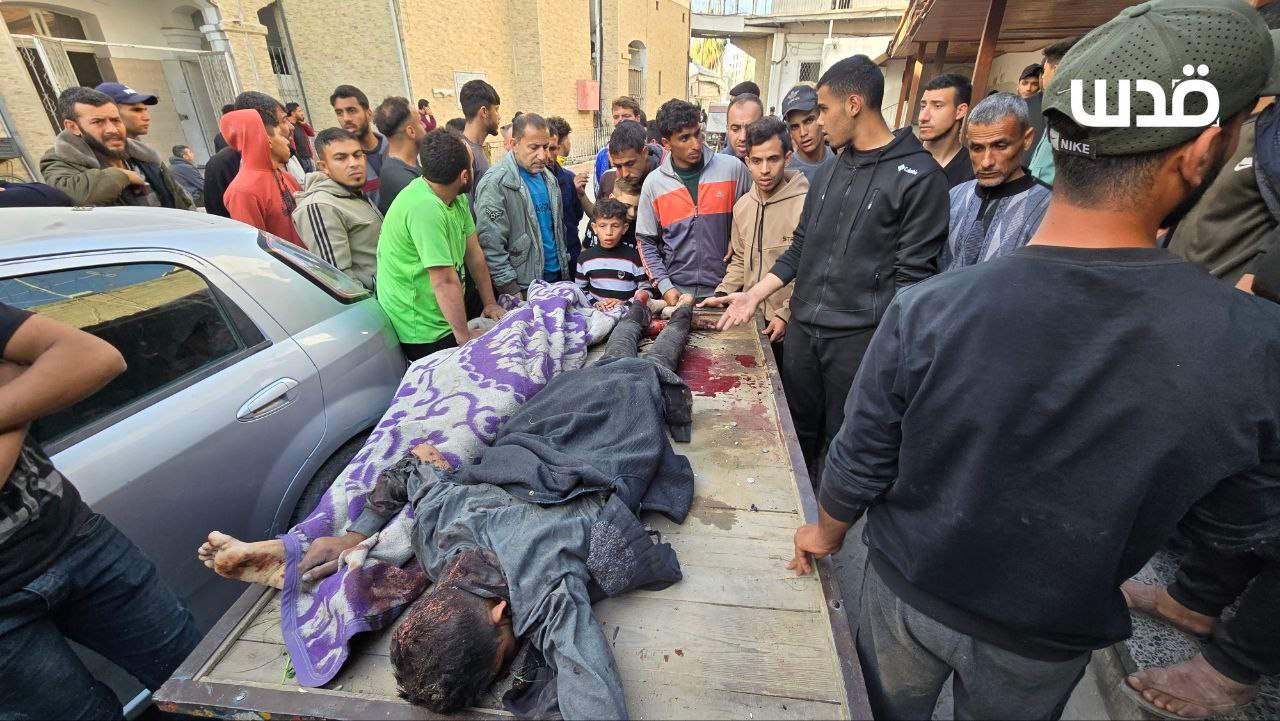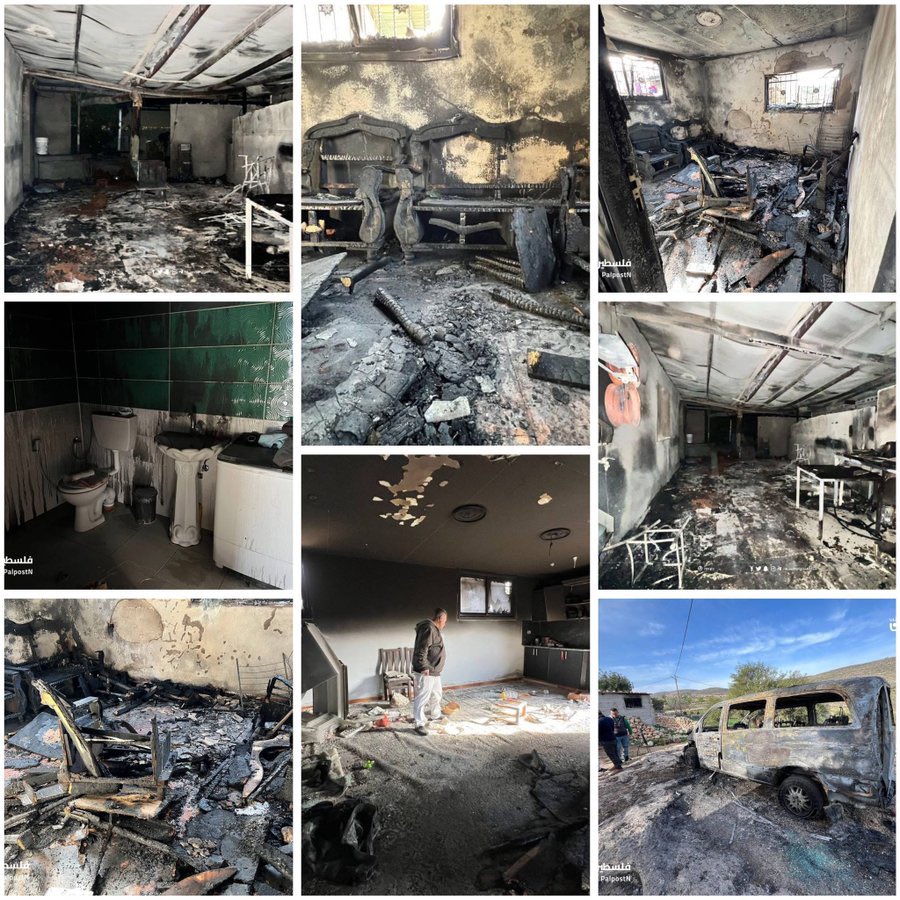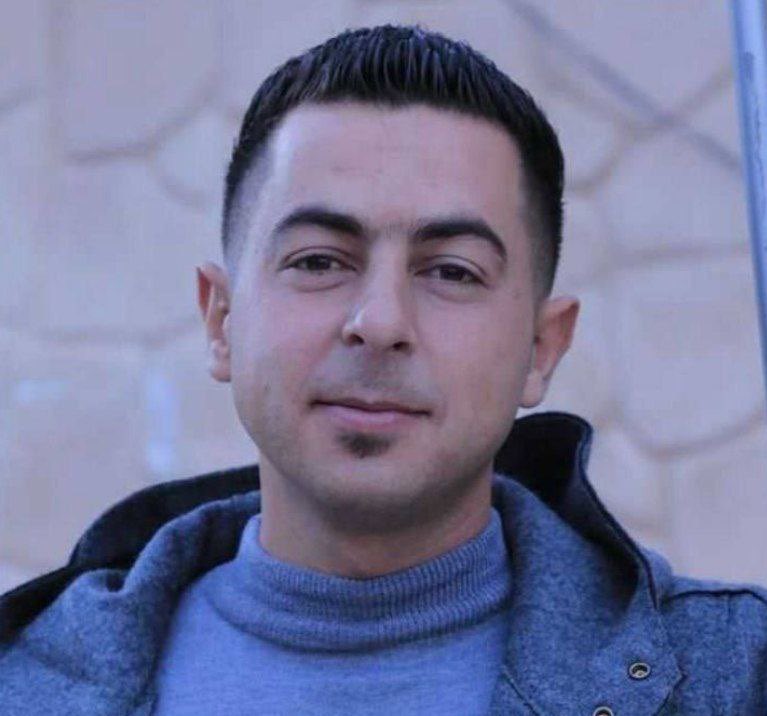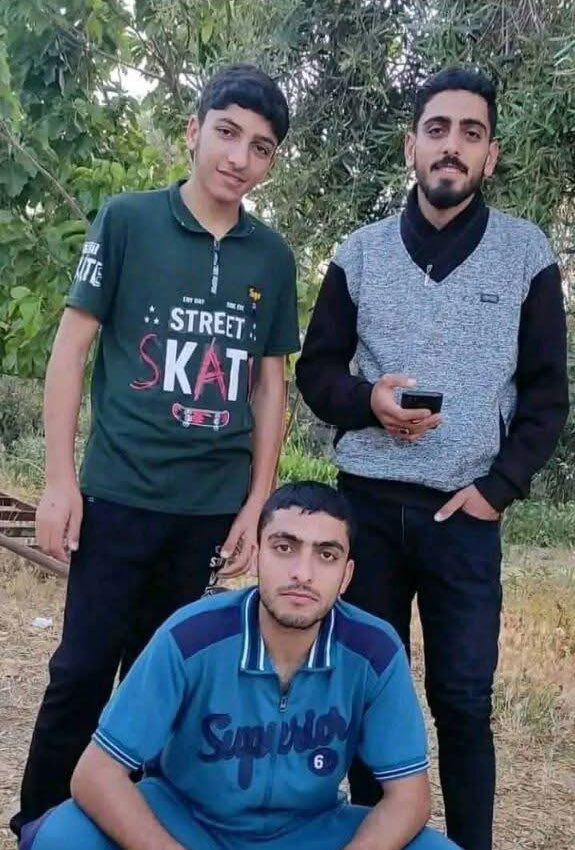
TikTok Genocide
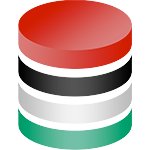
4 killed while collecting firewood - Zaytoun
Gaza, Gaza City, Zaytoun
14 March, 2025
At least 4 martyred
Around 4 pm, an Israeli drone airstrike targeted a group of people gathering firewrood in the vicinity of the Sobhat Al-Harrazin school in the Zaytoun neighborhood, southeast of Gaza City. Four people were killed.
This massacre brought the death toll due to Israeli strike since the ceasefire that started on Jnauary 19, 2025, to 140 victims in Gaza alone.
Pogrom in Khirbet al-Marajem
West Bank, Nablus, Khirbet al-Marajem
13 Mar, 2025 - 14 Mar, 2025
On the night of March 13 to 14, Israeli settlers militia carried out a pogrom in the community of Khirbet Al-Marajim,in the southeast of Nablus near Duma.
- They burned 3 Palestinian homes, belonging to citizens Khaled Daoud, Nasim Muslim, and Nayef Muslim, some with family trapped inside.
- They set fire to the house of Qutaiba Muslim, a Palestinian man just released from Israeli prison after 25 years.
- They burned 2 vehicles belonging to Nayef Muslim
- Worse still, settlers abducted two children, a 4-month-old and a 1.5-year-old. Locals managed to rescue the children.
- According to the head of Doma’s council, Suleiman Dawabsha, the Israeli declared Khirbet Al-Marajim a closed military zone, and prevented the residents of Doma from offering help to the residents of the village.
- They closed the roads connecting Doma to Khirbet al-Marajim and fired live ammunition, tear gas, and sound bombs towards residents who attempted to reach the burning homes to extinguish the flames protecting the settlers.
**Previous violent events**
The village has been for several years a target of attacks by colonists tighter with the occupying forces. Duma has repeatedly been targeted by violent settler attacks. On July 31, 2015, Israeli settlers firebombed a Palestinian family home in the village, killing three people. 18-month-old Ali Dawabsheh was burned alive, while both his parents succumbed to their injuries within weeks.
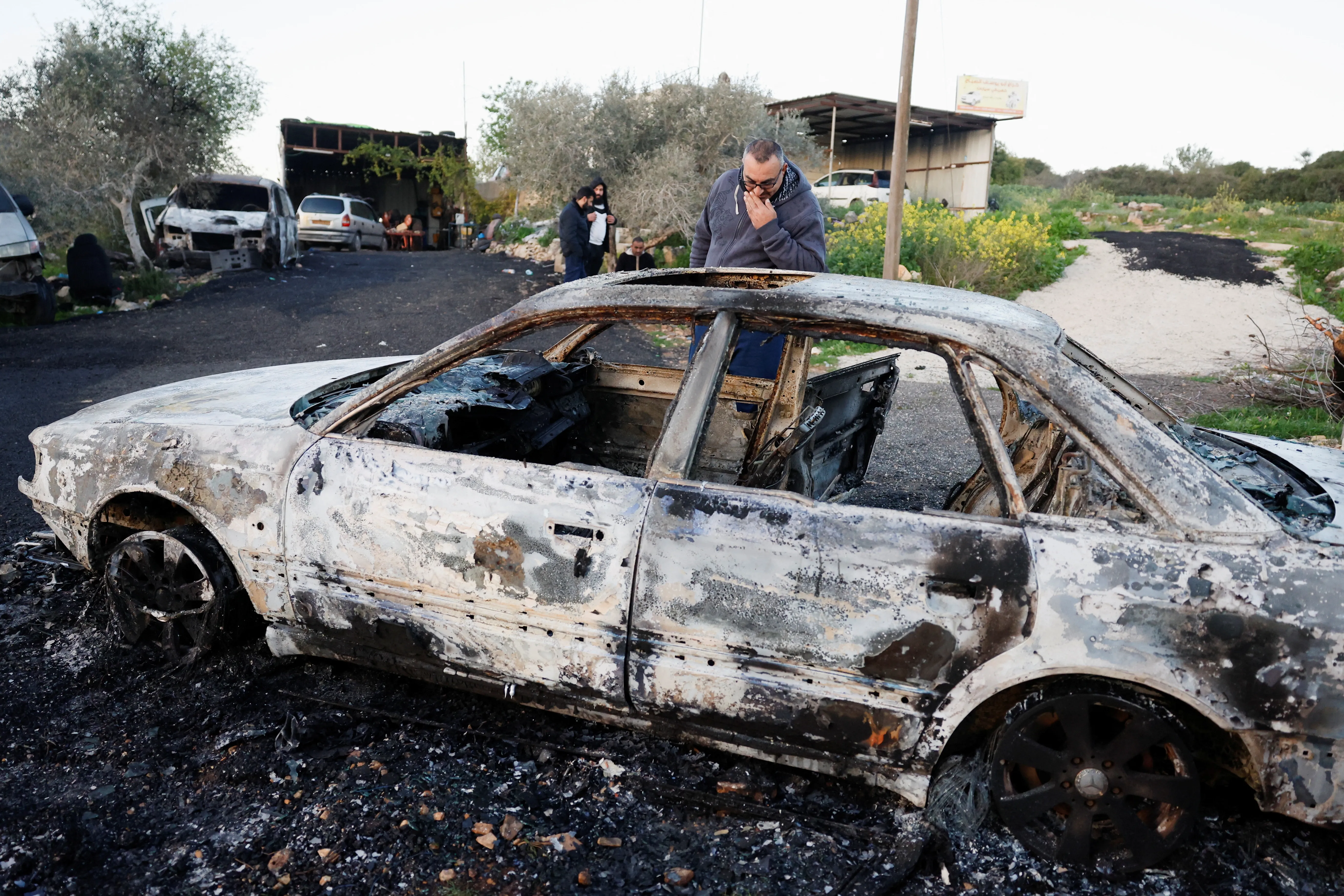
Arrest of three sisters in Hebron / AL-Khalil
West Bank, Al-Khalil/Hebron
12 March, 2025
The father of Palestinian teacher Iman Al-Zuhour, who was arrested this morning by Israeli forces from her home west of Hebron, said that the Israeli occupation arrested his three daughters.
"The first, teacher Iman Abdul Mahdi Al-Zuhour, Umm Abdullah. Iman's husband, Mu'in Al-Zuhour, who is my nephew, is under administrative detention in Nafha and has been detained for nearly twenty months. Her son Abdullah is detained in Ofer."
"The second daughter, Afnan, Umm Yousef, left behind her infant son. And the third, teacher Enas, Umm Al-Hassan," he added.
Violences around the construction of a settler road in Wadi Al-Matwi (Salfit)
West Bank, Salfit
11 March, 2025
**Since March 11, 2025**, Israeli army has been destroying large areas of Palestinian land in Wadi Al-Matwi in Salfit town in the occupied West Bank.
Activist Nazmi Al-Salman stated that the land destruction is part of a plan to construct a road for settlers to access an outpost.
He also mentioned that Israeli settlers have raised the Israeli flag along the road while bulldozers continue to uproot olive trees and destroy the land.
**On March 24, 2025**, Israeli Settlers continue to carve out settlement roads in Wadi al-Mutwi in Salfit, placing Israeli flags on a Palestinian house in the area and threatening to set it on fire if the owner removes them.
Settlers Threaten Palestinian, Halad Suleiman Al-Azazameh, in Salfit with Amputation If He Removes Israeli Flag.
On Sunday, Israel’s security cabinet decided to recognise more than a dozen new settlements in the occupied West Bank, upgrading existing neighbourhoods to independent settlement status.
Raid in Qalqilya and Azzun
West Bank, Jenin, Qalqilya, Azzun
11 March, 2025
On March 11, Israeli forces carry out a large and wide arrest campaign during the hours-long raid on the town of Azzun, east of Qalqilya.
Azzun has been repeatedly targeted by Israeli raids due to its location along a main road frequently used by illegal Israeli settlers traveling between Qalqilya and Ramallah.
- They arrested between 85 and 200 young men so far, subjecting them to assaults and forcing them out of their homes in their undergarments.
- In the morning, they released dozens of Palestinians after abusing, detaining, and interrogating them in a field. They forced young men to strip.
- They shelled a besieged house
- They stormed the house of journalist Karam Hussein destroying its contents and stole personal belongings.
Israeli killing spree in Gaza - 9 killed
Gaza, Khan Younis, Netzarim Corridor, Rafah, Abasan Al-Jadida
11 March, 2025
At least 9 martyred
- 10:45 am: an Israeli **drone shot** and killed young man **Najad Abu Sanima** in Al-Shawka town, east of **Rafah**.
- 1:15 pm: an Israeli **drone strike** targeted a gathering of people near the **Netzarim** corridor, **killing five** including two brothers: Muhammad and Ahmad Awad Al-Dahdouh
- 2:45 pm: an Israeli **drone strike** targeted a gathering of people in the town of Abasan Al-Jadida, east of **Khan Younis**. Two people were injured. The next morning, one of the two victims, 42 year-old preacher **Muhammad Ahmad Muhammad Asfour succumbed** to injuries
- 6:45 pm: a **woman** was pronounced dead after being shot by Israeli gunfire in **Deir al-Balah**
- 8:30 pm: **child Hala Abu Hadaf** was killed by Israeli gunfire in **Deir al-Balah**
Faiza Ibrahim Abu Ghali murdered by Israeli forces in Jenin
West Bank, Jenin
10 March, 2025
On March 11, a Palestinian elderly woman, Faiza Ibrahim Abu Ghali, 58, from Jenin was killed on Tuesday by Israeli forces. Her grand-son the child Ibrahim Abu Ghali, 7 y/o, was arrested long with his grandfather and uncles by IDF at dawn today from his grandfather's house on Haifa Street in the city of Jenin.
According to Ibrahim's testimony, they were arrested on March 11 at 5:30 a.m. and taken to the Al-Jamaleh area. They were stripped in the street, including Ibrahim. Faiza Abu Ghali came to check what was happening after the call to prayer, and Israeli soldiers shot her.
The Red Crescent Society said that its crews transferred a slain Palestinian woman, who was killed by Israeli occupation bullets from the Jalameh military checkpoint to Jenin Governmental Hospital.
All the arrested members of the family received no food while the soldiers mocked them, eating in front of them. They were interrogated for hours, beaten with boots and slapped on their backs. When they were released, they were given a garbage bag to cover themselves because they did not get their clothes back.
**Name of the martyr:**
- Faiza Ibrahim Abu Ghali, 58
The Palestinian Authorities said that the woman who was killed was shot by IDF troops at a checkpoint. Haaretz recently reported that the Israeli military expanded its “open fire” orders in the West Bank, which has led to an uptick in the killing of civilians, including children.
On March 11, 3 other Plalestinians were killed by Israeli forces and one by Palestinian authorities.
Motorcycle rider killed by an Israeli armored vehicle
West Bank, Jenin
10 March, 2025
At least 1 martyred
On March 10, an Israeli armored vehicle ran over and killed Ahmad Fathi Salah, 32, in Jenin, in the occupied West Bank.
The vehicle struck his motorcycle near Al-Dakhliyah roundabout and continued moving, leaving him to bleed to death.
Salah was rushed to the Ibn Sina Hospital, where medics pronounced him dead shortly afterward
Israel kills 3 brothers in central Gaza
Gaza, Deir al-Balah, Bureij
10 March, 2025
At least 3 martyred
About an hour later, Local reports indicated that at 2pm, Israeli aircraft launched a rocket and dropped grenades in the vicinity of Wadi Ab Qatroun north of Al-Bureij camp. Moments later, reports confirmed that 3 brothers from the Ahmad family were killed by a drone strike, likely the same attack.
A witness shared a testimony where he shared details on the crime: the three brothers were sheltering at the Abu Helo school and were on their way to check on their home when the drone struck them, killing them on the spot. He states that the area where they were struck was supposed to be safe.
After they were struck, a quadcopter descended and shot them to ensure they're dead, according to the interviewee.
**Names of the martyrs:**
1. Mahmoud Abdullah Ahmad (Bureij)
2. Muhammad Abdullah Ahmad (Bureij)
3. Ahmad Abdullah Ahmad (Bureij)
Military invasion of Burqin
West Bank, Jenin, Burqin
09 March, 2025
On March 9, Israeli tanks stormed the town of Wadi Burqin, west of Jenin in the northern West Bank, firing randomly as part of an ongoing military operation in the city and its refugee camp.
On the 48th day of the ongoing invasion of Jenin camp, Merkava occupation tanks moved from the camp toward the Wadi Burqin area, opening machine gunfire indiscriminately toward a mountainous region and blocking traffic.
Shortly after, these tanks and armored vehicles returned to Jenin camp.
This marks the first time since Feb. 23, when Israeli tanks entered the Jenin camp in the first military escalation of its kind since 2002.
The details for each video come from social media. None of it has been verified.
